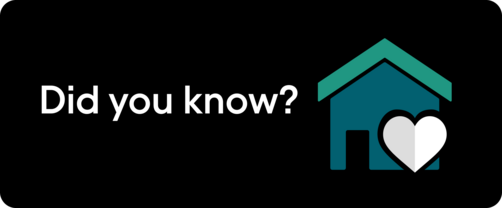Understanding the Property Income Allowance

The HMRC Property Income Allowance is a significant tax relief designed to simplify the tax reporting requirements for those earning income from residential properties. This allowance, capped at £1,000 per tax year, can be incredibly beneficial for UK landlords with modest rental incomes.
Introduced in April 2017, the allowance aims to support individuals with small-scale letting activities by providing a straightforward way to reduce their taxable income. By utilising this allowance, many landlords can avoid the complexities of detailed expense reporting and benefit from straightforward, tax-free earnings.
Whether you’re renting out a room in your home or managing multiple properties, understanding how to maximise the Property Income Allowance is essential. Expert tax assistants available on the Pie app can provide valuable insights into navigating these regulations effectively and efficiently.
How the Allowance Works
A tax rebate occurs when taxpayers overpay their taxes and are eligible for tax refunds. This can apply to both employed and self-employed individuals. Overpayment of taxes can result from various factors, such as job expenses and incorrect tax codes, causing taxpayers to pay more tax than necessary. So, how do you know if you’re due a tax rebate? You can use tools like our Tax Rebate Calculator to estimate your potential rebate. Additionally, HMRC may send a letter, such as a P800 or a simple assessment letter, to inform you if you’re due for a tax rebate.


Eligibility Criteria
To qualify for the Property Income Allowance, rental income must be £1,000 or less within a tax year. This allowance provides tax relief by allowing individuals to earn up to £1,000 of rental income tax-free without needing to declare it.
However, if rental income exceeds £1,000, the landlord must deduct specific allowable expenses to calculate the taxable profit. This ensures that only the net rental income above the £1,000 allowance is taxed, simplifying tax reporting for those with modest rental earnings.

In recent years, rental income in the UK has seen substantial growth. Over 2.6 million landlords have reported rental income, indicating the growing relevance of this allowance.Rental Income Growth

Since its introduction, approximately £2 billion in relief has been provided to landlords. This showcases the broad impact and financial significance of the Property Income Allowance.Allowance Impact

Detailed Allowance Insights
Given its simplicity and wide-reaching benefits, the HMRC Property Income Allowance can make property management more accessible to many UK residents. By claiming this allowance, landlords with rental income up to £1,000 need only to submit simplified tax returns, potentially reducing the need for in-depth accounting practices.
On the other hand, landlords with incomes exceeding the allowance may either deduct the £1,000 automatically or opt to claim their actual expenses, whichever results in a lower tax liability. This flexibility ensures that both small and larger scale landlords can optimise their tax situation based on their specific circumstances. The Pie Tax App can aid in determining the best approach for your individual needs.
Simplifying Tax Reporting
One of the most significant benefits of the Property Income Allowance is the simplicity it brings to tax reporting. Landlords earning less than £1,000 from property annually can receive this income tax-free without deducting any business expenses. This significantly reduces the paperwork and administrative burden associated with annual tax returns.
Additionally, those earning more than the threshold can opt for the £1,000 allowance instead of itemising allowable expenses, streamlining the reporting process. Using the Pie Tax App can help you navigate this and ensure you maximise profits by selecting the most favourable option.

Key Tips for Landlords

Ensure your rental activities meet the criteria for this allowance. Not all property incomes qualify for the relief.Check Your Eligibility

If your rental income surpasses £1,000, calculate your expenses to decide the best tax-saving method.Calculate your expenses

Use the Pie Tax App to get help from an expert tax assistant to utilise the property income allowance efficiently.Consult an expert

Fun Fact About Allowance
Did you know that nearly 70% of UK landlords are unaware of the HMRC Property Income Allowance? This statistic underscores the importance of awareness in fully utilising available tax reliefs.
Expert Advice for Landlords

If you’re a landlord earning rental income, consulting with tax experts can profoundly impact tax efficiency. The Property Income Allowance offers a convenient way to simplify tax reporting, and knowing how to utilise it effectively can result in significant savings.
The Expert tax assistants available on the Pie app can provide precise and tailored advice to help you make informed decisions. Whether you prefer to keep your tax affairs straightforward or seek to optimise deductions meticulously, leveraging professional advice ensures compliance and maximises financial benefits.

Understanding the interplay between rental income and allowable expenses is crucial. Consistently track your rental income and expenses to make informed decisions each tax year. Knowing when to opt for the simplified Property Income Allowance and expert advice can aid in making these decisions.Optimising Tax Savings

Bear in mind that while the allowance simplifies tax reporting, it is always beneficial to stay informed about any changes or updates to tax laws. Keeping abreast of these changes with the help of the Pie Tax App ensures you remain compliant while maximising your financial position each tax year.Key Considerations
Summary
In conclusion, the HMRC Property Income Allowance offers a robust framework for reducing the administrative complexities and tax burdens for UK landlords with modest rental incomes. Whether earned income is below or above the £1,000 threshold, utilising this allowance optimally can lead to significant tax savings while making tax reporting more straightforward.
Landlords should regularly assess their rental income and expenses to determine the best approach. The utilisation of tools like the Pie Tax App and insights from expert tax assistants can offer landlords the necessary guidance to maximise their financial returns.
In sum, being informed and proactive in managing property income can lead to substantial benefits, making the HMRC Property Income Allowance an essential tool for modern landlords.
Frequently Asked Questions
What is the HMRC Property Income Allowance?
The HMRC Property Income Allowance is a tax relief that allows individuals earning rental income to claim up to £1,000 tax-free per tax year. This simplifies the tax reporting process and is particularly beneficial for small-scale landlords.
Who qualifies for the Property Income Allowance?
Any individual with rental income of up to £1,000 in a tax year qualifies. If the rental income exceeds this amount, landlords must decide between the £1,000 allowance or actual expense claims to reduce their taxable income.
How do I claim the Property Income Allowance?
Claiming the Property Income Allowance is straightforward. When filling out your tax return, there is a specific section for property income where you can apply the £1,000 allowance. The Pie Tax App can help streamline this process.
Can I claim expenses and the Property Income Allowance simultaneously?
No. You must choose between claiming the £1,000 Property Income Allowance or claiming actual expenses. Expert tax assistants available on the Pie app can help determine which option is more favourable for your situation.
How does the Property Income Allowance affect my tax return?
The allowance can simplify your tax return. If your rental income is under £1,000, this amount can be declared tax-free, reducing the need for itemising expenses and making your tax return more straightforward to complete.










